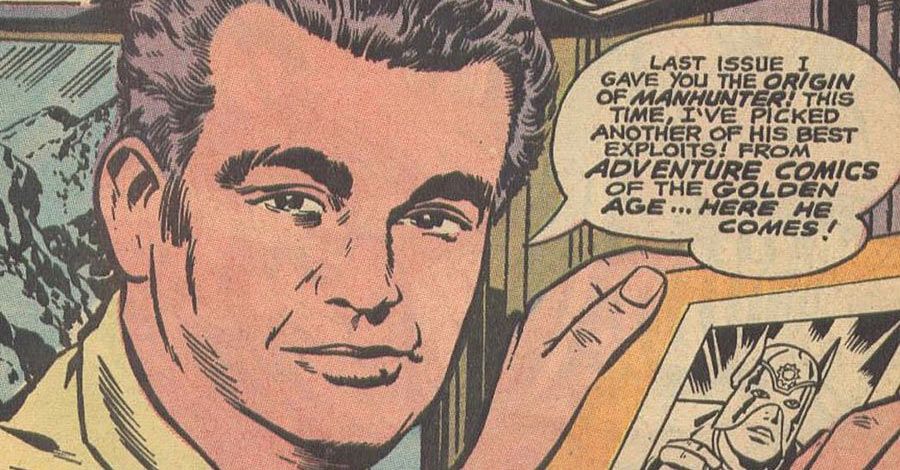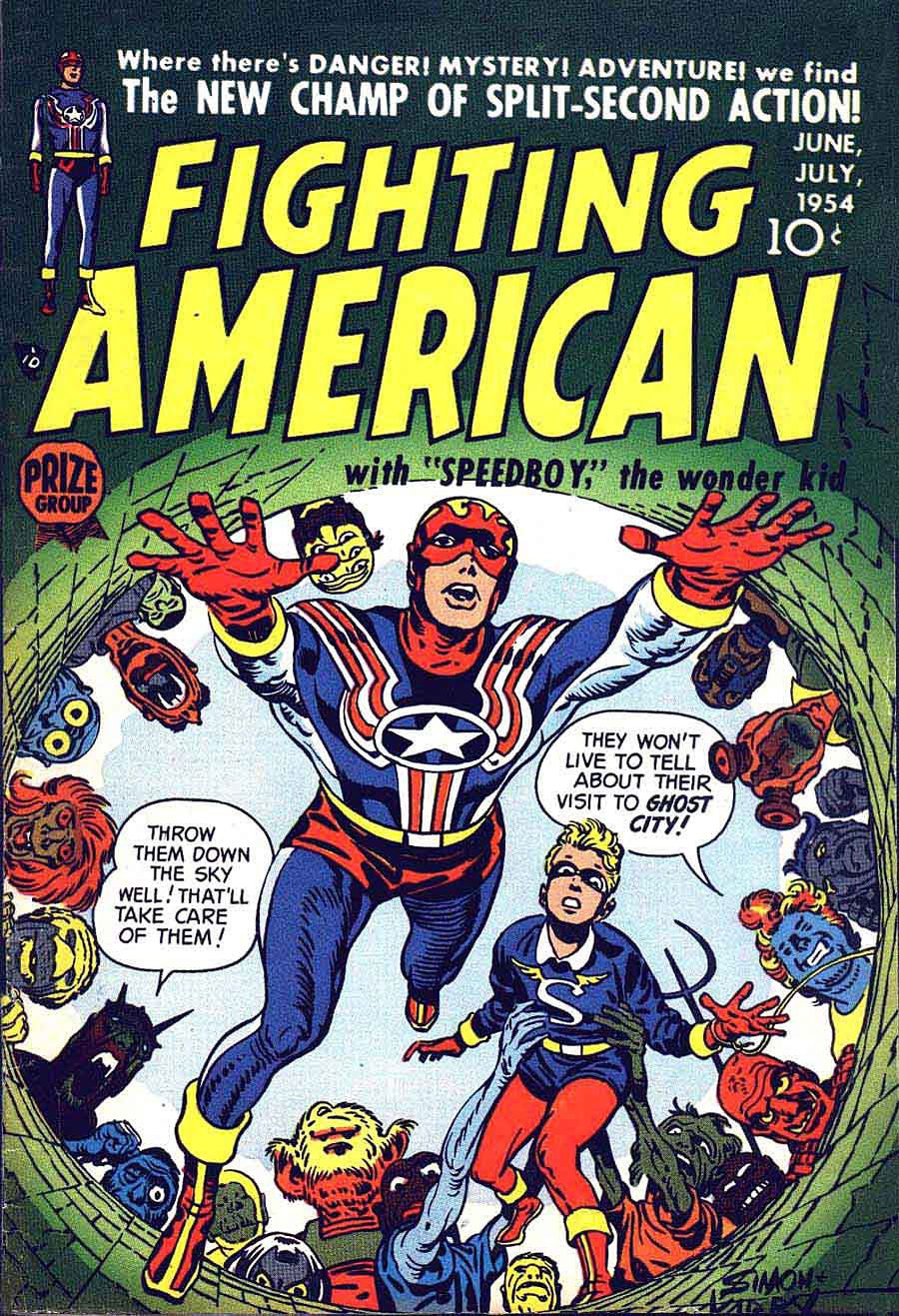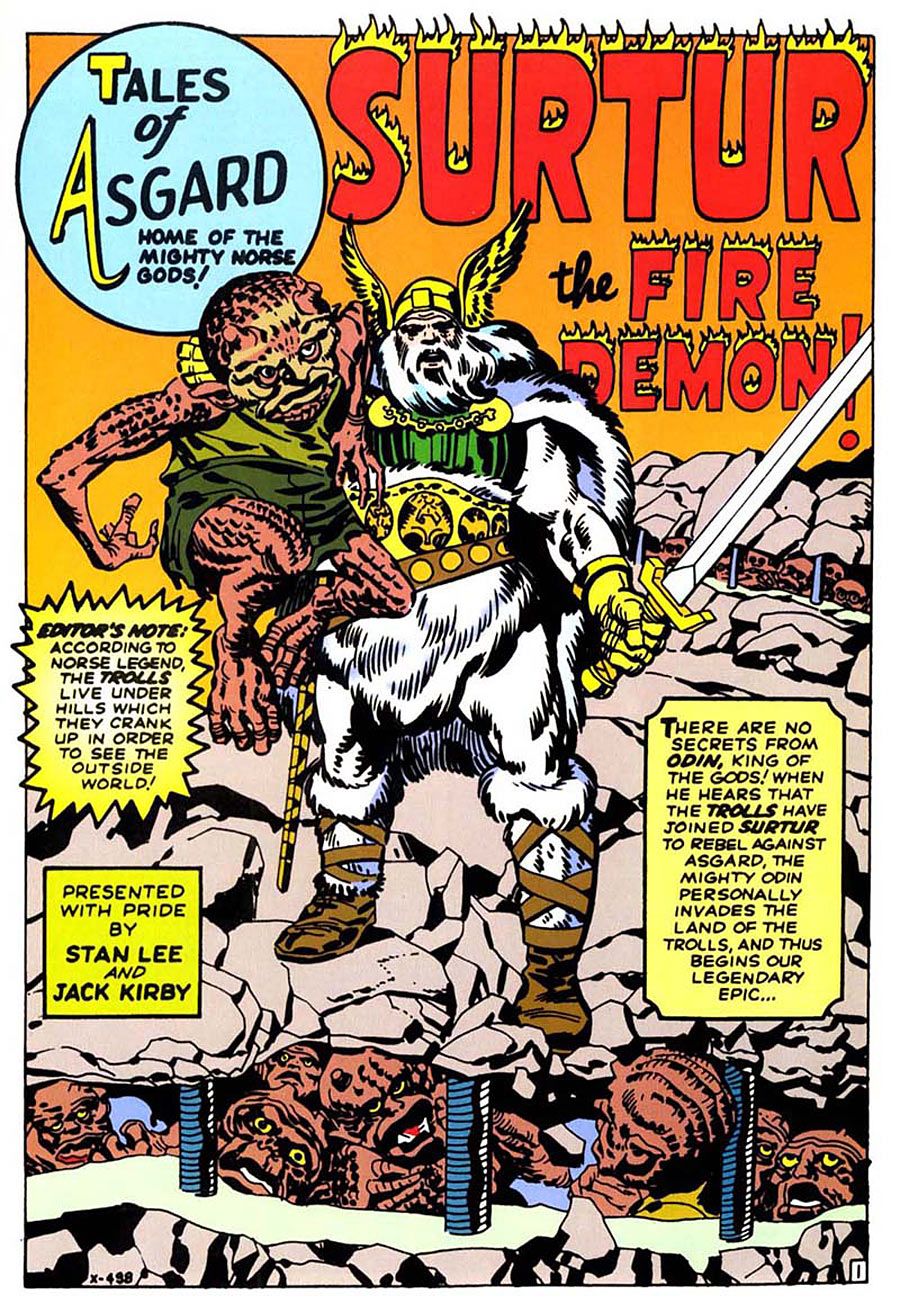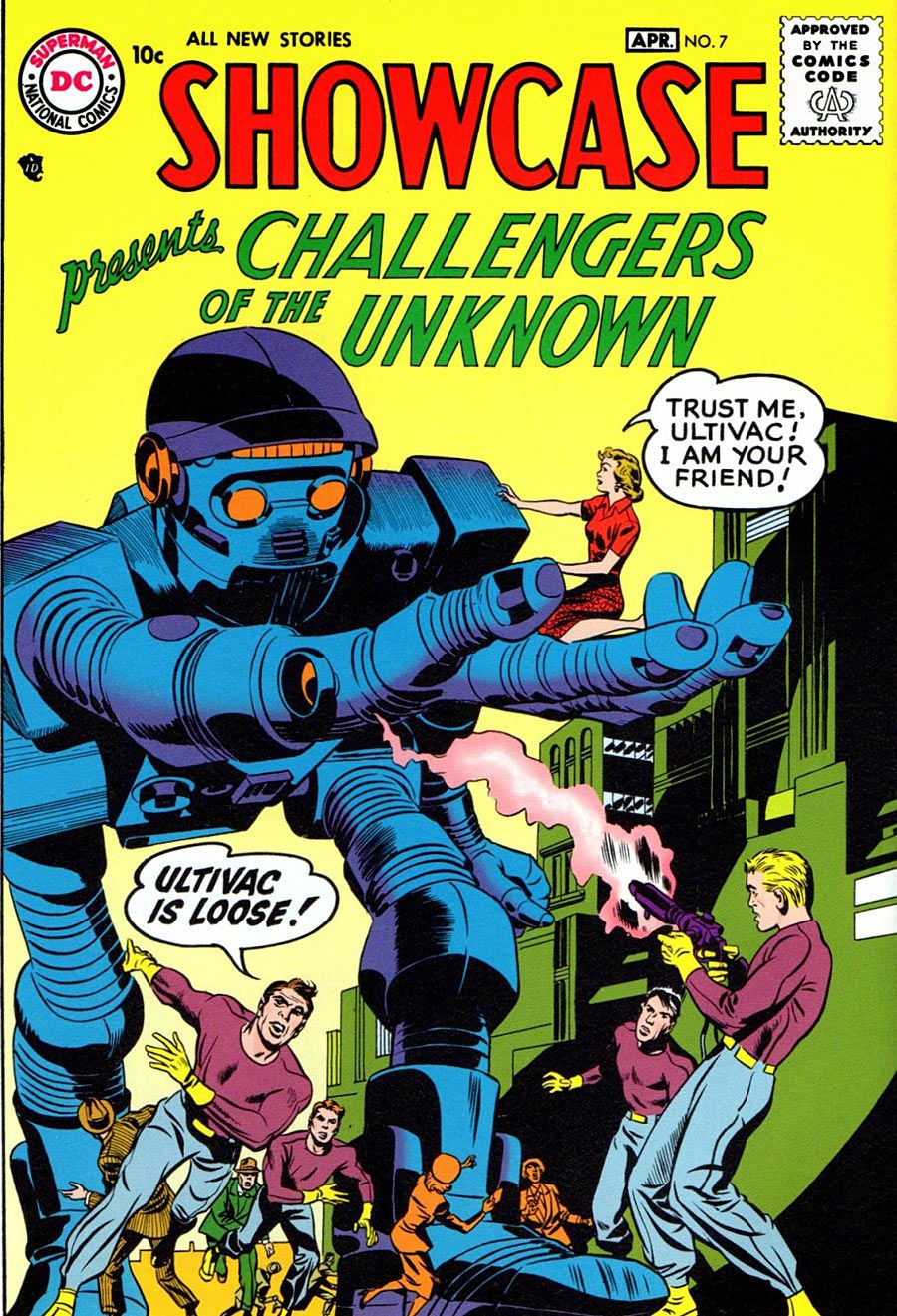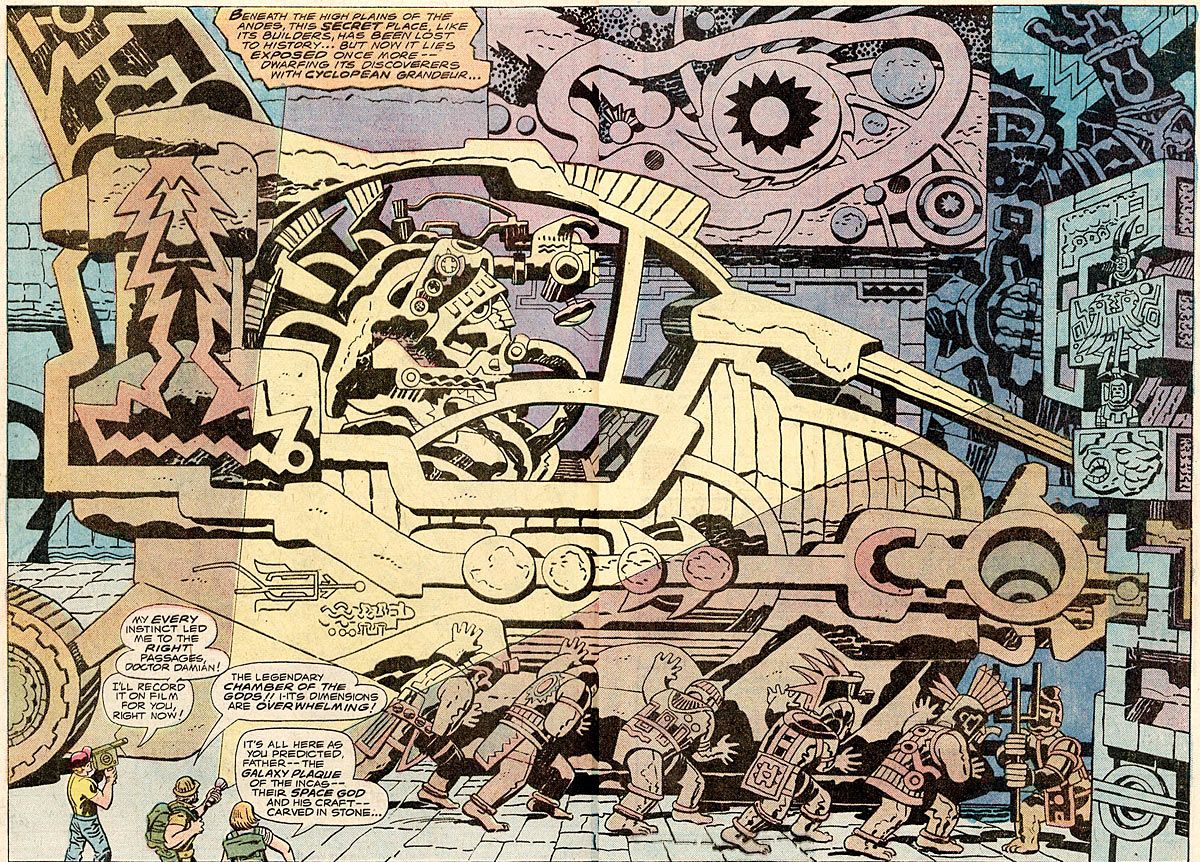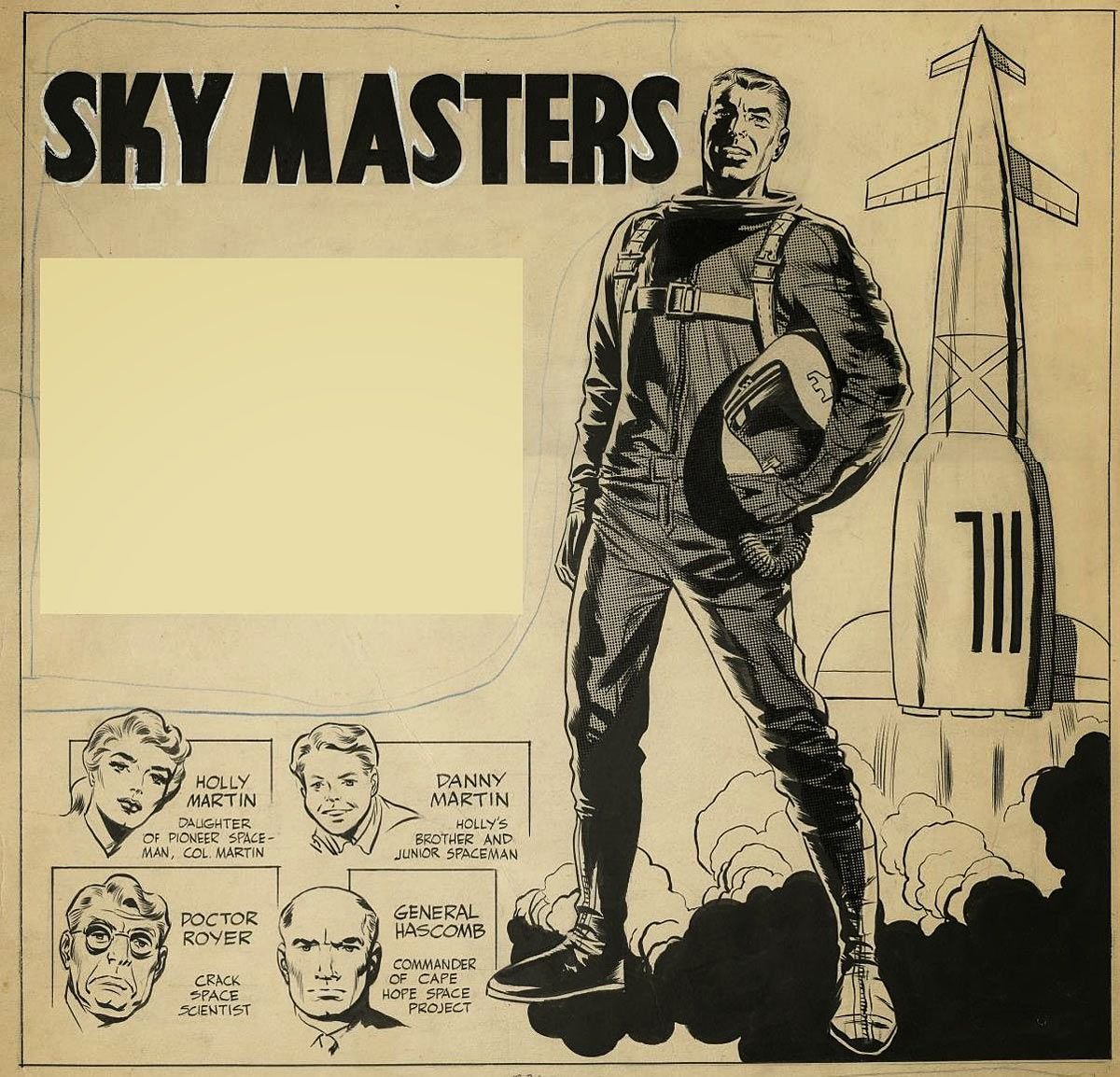Jack Kirby's lawyer and longtime friend, Paul S. Levine, had the last word at the annual memorial panel for the comic book legend. "Jack never cared about money, he cared about credit," Levine said, referring to the credits shown on Marvel's movies and comics. "And now he has it."
And while it's fitting that the co-creator of so much of the Marvel Universe now has his name shared with the public on some of the biggest box office blockbusters in history, for those who gathered at the Jack Kirby Tribute Panel on the final day of Comic-Con International in San Diego, there was never any doubt as to who the King was.
On the annual tribute panel, moderated by storied Kirby scholar Mark Evanier, was Rob Liefeld ("Youngblood"), Marv Wolfman ("Tomb of Dracula"), J. David Spurlock (Vanguard Productions) and Levine. Each man talked about their feelings and memories of arguably the most important visionary in comic book history. Strangely, though it was a panel devoted to a master of the visual arts, it did not utilize any of the video technology usually used during Comic-Con presentations. Instead, the panel relied on anecdotes and personal feelings about the man who birthed the Marvel Universe -- and so much more -- from his boundless imagination.
Evanier welcomed the gathering of fans and introduced Kirby's granddaughter Tracy to prolonged applause. He then began his recollection of "The King" by talking about how Kirby felt about Marvel's newest film superstar. "Jack was never surprised about anything related to comics," Evanier said. "Somebody asked me last year if Jack would have been surprised over the multi-million dollar movie 'The Avengers.' No. Would Jack have been surprised over the success of 'Thor?' No. Would Jack have been surprised over a huge, multi-million dollar movie of 'Ant-Man?' -- Maybe!" When the laughter died down, Evanier continued. "Ant-Man was the character Jack cared about the least. He got very angry one time when someone wrote an article and said 'Because Jack is short, he must identify most with Ant-Man.' Jack thought Ant-Man was a stupid concept, because nobody fantasizes about being chased by a caterpillar." However, Evanier said, Kirby's imagination was so boundless he could see the potential in any concept.
Marvel Comics Titles Now Include Jack Kirby Creator Credit
"Jack and Roz [his wife] would have been happy," Evanier said of the recently settled lawsuit with Marvel. "Everyone around the Kirby family was happy. Now, it may have been too little too late -- Jack and Roz should have been here to see it -- but given the reality, all were happy." Evanier expanded on why Kirby would have been elated. "What Kirby contributed to the Marvel Universe, Jack always thought was underplayed."
Evanier then went off on a lengthy tangent about why he didn't like the first "X-Men" film, but things shifted back to Kirby when Evanier noticed the artists name only came on at the very end of the credits -- "after the guy that made the donuts." This made Evanier very angry, but, he admitted, "a great weight has been lifted off my shoulders" because Kirby's name is back on Marvel media.
From Marvel to a creation Kirby dreamed up outside the House of Ideas, Levine announced that the Kirby estate signed a new deal to allow Titan Comics to publish new material based on Kirby's Captain America parody character, Fighting American. Piggybacking on that announcement, Evanier told the gathered Kirby faithful that IDW Publishing will soon publish a second "Kamandi" Artist's Edition.
With announcements out of the way, Evanier asked Rob Liefeld about his feelings on and experiences with Kirby. "My love for Jack runs so deep," the Image Comics co-founder said. "I started collecting comics at five years-old. My parents gave me 'Casper' and 'Richie Rich.' My barber had comics and he let me swap my 'Caspers' for super heroes -- I got to read 'The New Gods.' Sometimes a comic stays with you your whole life and you can't explain why -- ever since I read 'OMAC' I have been trying to recreate it my entire life and failing miserably." After paying homage to Kirby's DC creations, Liefeld concisely spelled out his views of Kirby's talents. "He had the best imagination, he was the best storyteller, the best illustrator, and by far the best costume designer this business has ever seen."
Liefeld also shared details of his first meeting with Kirby. "The first time I met Jack I was on a panel. I just started my career," Liefeld recalled. "I was on a panel with Jack and Mike Mignola and everything Jack said that day encouraged me -- someone asked him 'What advantages do comic books have?' and Jack said, 'Y'know, everything we imagine we can do with a pencil and paper, we have unlimited budgets.' All the current big budget films, they got it all from Jack."
Liefeld continued the Kirby memories with story about when he and his Image peers were invited to Kirby's house. "I was invited with some of the guys to Roz and Jack's house. About six of us including Eric Stephenson -- Jack told the best stories from World War II to the comics industry -- we were touching the hand of God."
Liefeld then talked about the biblical drawings that lined the walls of the Kirby home. "We walked by, we saw a picture of a man with a beard and flowing hair. I asked, 'Who's this? Is it Odin, is it Highfather?' And Jack said, 'That's God.' And I saw a picture of some Jack Kirby machine, some Galactus technology thing that can only come out of Jack's imagination and there's a guy pounding buttons and there's walls falling in the distance and Jack said 'That's the battle of Jericho.' It was mind-blowing," said Liefeld. "It was the most significant moment of my career." Liefeld then related the story of how he and the Image partners inked some unpublished Kirby pages and gave Kirby a large check for the work -- something most of his other publishers never did when Kirby was alive.
Liefeld finished his memories by telling the crowd how it's up to those that loved Kirby to keep his name alive "because we can't count on the corporations to do that. I'm so thrilled about the settlement," Liefeld said. "Bottom line is, if you don't talk about him, his work could be lost. You talk about Steven Spielberg as a great imagination and Jack Kirby should be talked about in the same sentence."
"Jack had constant themes in his works," said Spurlock. "When I look at the Forever People, I see a modern day retelling of the Newsboy Legion and the kid gangs of the '40s. When I look at Asgard and Thor, I see that echoed in the 'New Gods' and the Fourth World and later again in 'The Eternals.' There is no question Jack was the greatest creative force of the 20th Century."
Spurlock, the Director of the Wallace Wood Estate, and Evanier then regaled the Comic-Con crowd with a tale of Kirby's relationship with another Silver Age great -- Wally Wood. "The two times I ever spent time with Wally Wood, he would not get off the subject of how great Jack was professionally and personally and how guilty he felt that he missed deadlines when he and Jack worked on 'Sky Masters,'" Evanier said. In turn, according to Spurlock, "Jack had nothing but fondness for Wally."
Thinking back on Wood's final Comic-Con International, Spurlock and Evanier explained how Wood paid tribute one final time. "In the bar area, Wood was nursing one drink the entire time -- he had not seen Jack yet at the convention. Jack and Roz walked into the bar, Wood jumped up and yelled 'Jack, you're the greatest!' to which Jack responded, 'No, Wally, you're the greatest!'"
According to Evanier, Wood did once express regret over his inks adding too much to Kirby's pencils. "One day Wood and I were looking at some Kirby 'Fantastic Four' inked by Joe Sinnott and Wood said, 'That's the way Jack Kirby should be inked.'" According to Spurlock, Wood always wanted to ink Kirby again after "Sky Masters" and "Challengers of the Unknown," and regretted the fact that, with few exceptions, he didn't have the opportunity again.
Continuing on the Wood front, Spurlock also explained the difference between the trajectory of Wood and Kirby's careers after both artists grew unhappy with Marvel Comics. Spurlock said Wood was the first major Marvel artist to leave the company in the late '60s, quickly followed by Steve Ditko. Kirby, who was the only of the three artists with a family, could not leave Marvel because of financial obligations. "I think Kirby would have left right there and then," Spurlock said. "But he couldn't go to DC because of a lawsuit and he wasn't going to join Wood at a small company like Tower Comics. He needed security for his family."
Speaking about his time as Marvel's Editor-in-Chief, Wolfman discussed Kirby's return to Marvel in the mid-1970s. "It was no secret that Jack was coming back to Marvel at this time. I was always a huge Kirby fan. Back when I was young, Green Arrow had a strip in 'Adventure Comics' and it was one of the most boring strips around. All of a sudden, when I was a kid, the strip changed and all of a sudden, giant arrows were falling from space and it was crazy," said Wolfman. "Of course, I found out later, that's when Jack came on board. I fell in love with 'Challengers of the Unknown' when there were no credits, and I later found out it was Jack and Wally I fell in love with."
Despite his reverence for the work, it was the man Wolfman remembered most. "He was the kindest human being you've ever met," Wolfman said. "I met him when I was a kid, we went to his house. Imagine the person drawing Galactus at the time. We saw Galactus months before it came out and Jack made time for little kids. We saw drawings of the New Gods years before they came out."
The panel wrapped up with Evanier asking the panelists if they could give a new fan one Kirby comic that defined the artist as "The King," what would it be? "Thor," Wolfman said. "I never saw that kind of scale in comics. He always had pictures of gods and mythology all over his house. His 'Tales of Asgard' was some of the boldest comics ever."
"I would give them 'Galactus Saga,'" said Liefeld. "In 1989, Marc Silvestri gave me the 'Galactus Saga' and 'FF'#1-100 and it changed my life -- Jack never put too little or too much on panel, he always gave you exactly what was needed. In those issues you got the FF, Silver Surfer, Galactus, and then the Inhumans and Black Panther. It was brilliant."
Spurlock agreed that the Galactus Trilogy was the height of Kirby's talent because "they were the right concepts for his themes. But 'Challengers of the Unknown' and 'Sky Masters' also were American classics."

